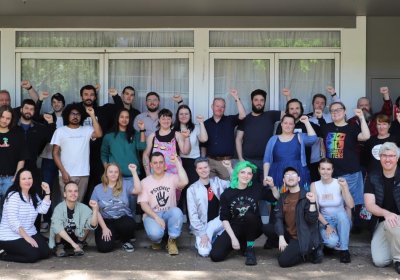The Reserve Banks of Australia's talk about the need to “increase productivity” means less regulation and more “flexibility” for the bosses. Mary Merkenich and Pip Hinman report.
Wage rises
Two unions covering rail workers in New South Wales have welcomed the federal Fair Work Commission’s decision to grant a pay rise for rail staff over 2022–23. Jim McIlroy reports.
Given how many are being crunched by the cost-of-living crisis, public sentiment would be on the unions’ side if they took united action for wage rises, argues Mary Merkenich.
Workplace delegates with the Retail and Fast Food Workers Union just finished the union’s first ever conference. Isaac Nellist reports.
Members of the Australian Nursing Federation WA are set to start day-long work stoppages as part of their enterprise bargaining agreement negotiations with the state Labor government. Chris Jenkins reports.
Despite the Treasurer saying workers’ wages are not to blame for inflation, the government is not coming up with solutions to address wage stagnation, argues Jacob Andrewartha.
Frozen food workers in Smithton, Tasmania, have forced McCain to an in-principle agreement for a pay rise, Jim McIlroy reports.
How bad are things today when even the head of the Reserve Bank of Australia agrees workers are feeling too insecure to demand wage rises.
Speaking at the Australian National University on June 19, Reserve Bank governor Philip Lowe said: “People value security and one way you can get a bit more security is to not demand a wage rise.” Although his argument was about the impact on economic growth, it highlights the level of insecurity felt by workers today.







